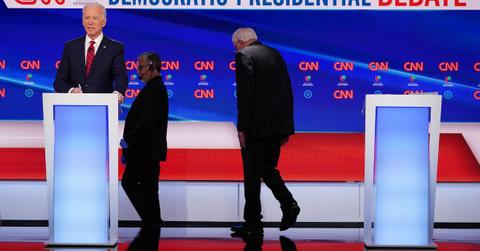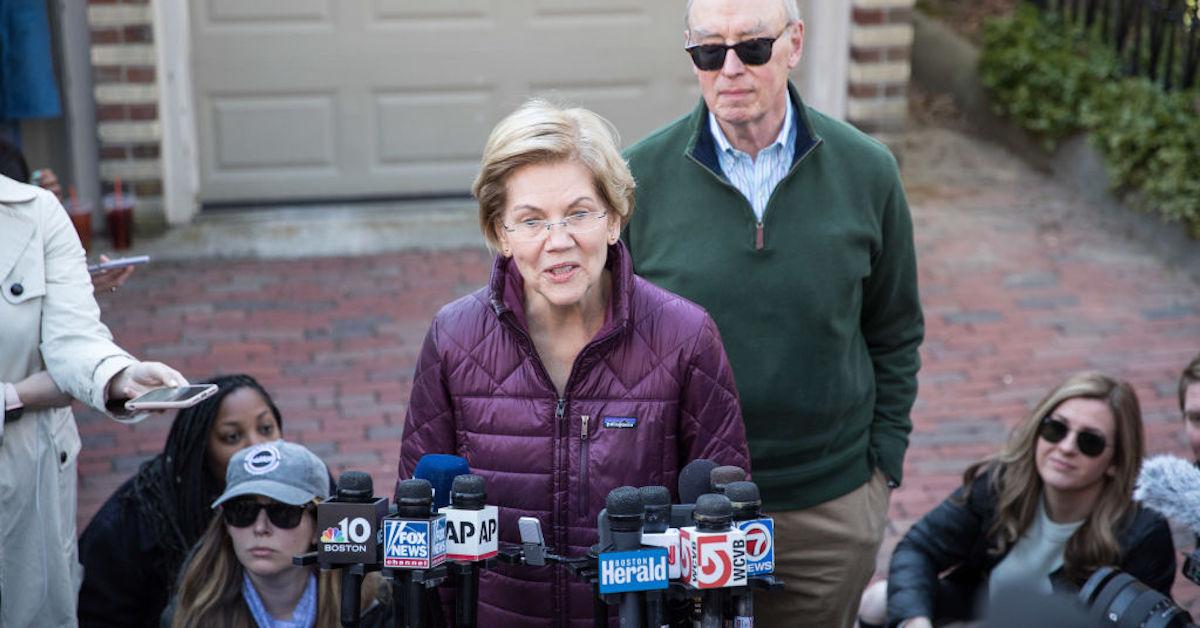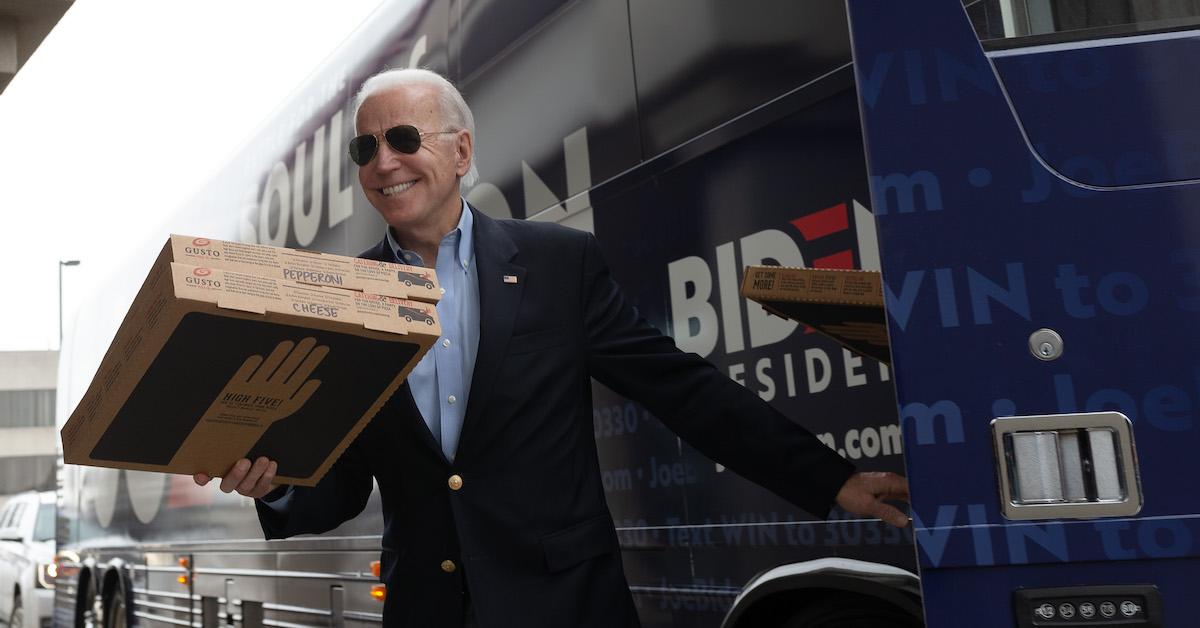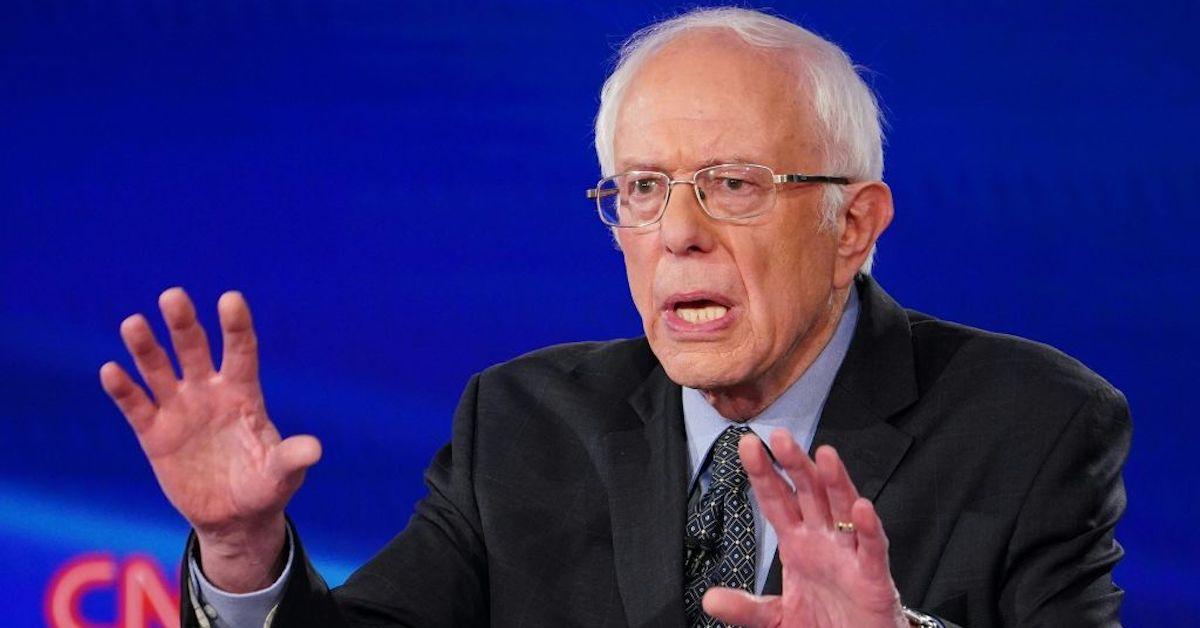Here's What Happens to Unused Campaign Funds After a Candidate Drops Out
Updated April 9 2020, 12:53 p.m. ET

The 2020 presidential race has seemed to have more candidates than ever in the history of the country, which means a ton of money raised to help them get to the general election. However, when Bernie Sanders suspended his campaign, the Democratic field that once included over 30 candidates was down to just one contender, Joe Biden, to oppose incumbent Donald Trump.
So you may be wondering, what happens to unused campaign funds after a candidate drops out of the race? The truth is, more often than not there's nothing left to worry about. However, candidates sometimes have unused campaign funds, and there are a ton of laws about what they can and cannot do with the money.

So what happens with unused campaign funds?
First off, let's get into why this is a rare concern for a primary candidate who has suspended their campaign. It's far more common for a failed candidacy to end up in the red than to have coffers they have to unload.
The Federal Elections Commission (FEC) rules on finance include just as much about dealing with campaign debts as it does surplus funds because it's a far more common concern when a candidate winds down their campaign. Running for president is expensive, and most of the time when someone drops out it's because they can no longer sustain their run financially.
Even in a general election, candidates do their best to spend as close to the last penny as they can. However, if they do have remaining funds, FEC regulations provide a limited number of options for their use, and all personal use is prohibited, both during and after the race. Any money the candidate uses from the fund must have a documented purpose related to their campaign. So for example, they can use it to buy pizza for everyone in their organizing office, but they can't buy pizza for their family for dinner with it.

In the event a campaign has money left over, there are a few options for what can be done with the funds:
- Cover costs of winding down a campaign, including "gifts or donations of nominal value" to campaign donors or staff who are not members of the candidate's family.
- Donate to charity.
- Donate to their party as the federal, state, or local level.
- Make contributions to other candidates' campaigns (provided donations do not exceed $2,000 per individual candidate).
- Save it for a future campaign.
- Do nothing.
Yep, that's right, you can just let the money sit in an account and accrue interest, so long as they don't use it for personal use. A few candidates historically have done this.

Does Bernie Sanders have campaign funds left over?
Bernie Sanders raised over $180M for his presidential run according to OpenSecrets.org, more than any Democratic challenger who was not a self-funded billionaire. So you'd think he'd have a bunch of money left, right? Well, as of March 23, he had $18M cash on hand, about 10 percent of the total money raised. However, those numbers likely don't include expenses between last reporting and the Wisconsin primary.
If Sanders does have money left after he winds down the campaign, he will be held to the same restrictions as any candidate, and based on past behavior, will likely hang onto that money for another run.